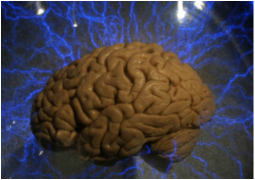
A new study could have enormous implications for conditions such as autism and schizophrenia. It claims that the immune system affects and even controls social behavior.
Blocking a single type of immune molecule in the brain of a mouse caused abnormal behavior that would go away once the molecule was restored.
It may not sound like a monumental discovery at first glance, but researchers from the University of Virginia School of Medicine believe that this means that our immune system controls such fundamentals as our desire to interact with others.
The implications go so far as to suggest that immune system problems contribute to an inability to have normal social interactions.
"The brain and the adaptive immune system were thought to be isolated from each other, and any immune activity in the brain was perceived as sign of a pathology. And now, not only are we showing that they are closely interacting, but some of our behavior traits might have evolved because of our immune response to pathogens," explained Jonathan Kipnis, PhD, chairman of UVA's Department of Neuroscience. "It's crazy, but maybe we are just multicellular battlefields for two ancient forces: pathogens and the immune system. Part of our personality may actually be dictated by the immune system."
What the researchers are suggesting is that in the course of evolution, we engage in the social interactions necessary for the survival of the species, while developing ways for our immune systems to protect us from the diseases that accompany those interactions.
Social behavior is beneficial for pathogens, as it allows them to spread.
This story in its entirety can be read here.
 RSS Feed
RSS Feed